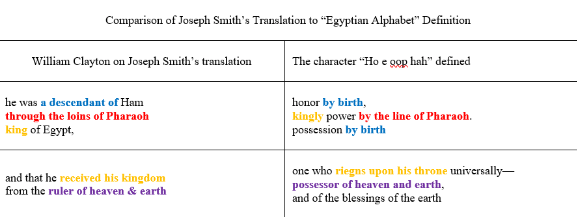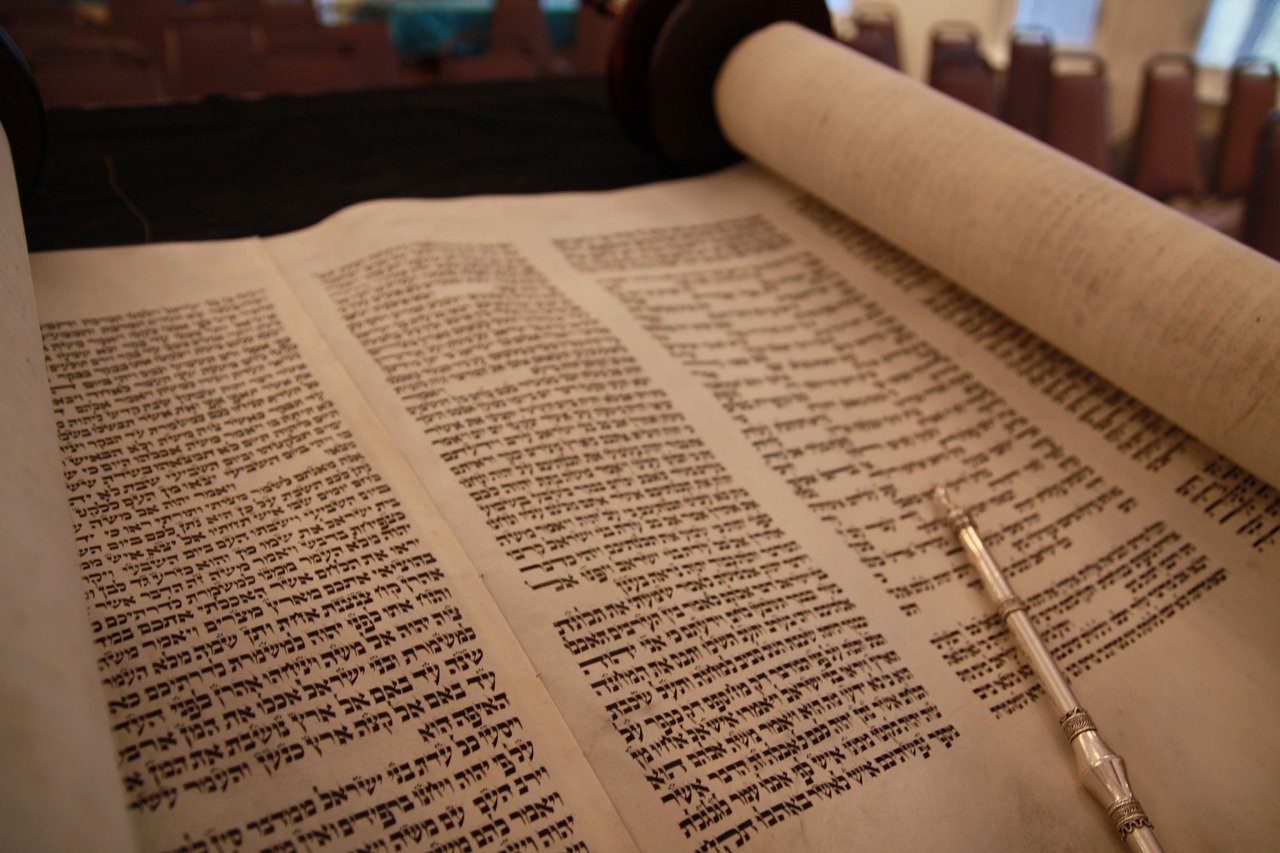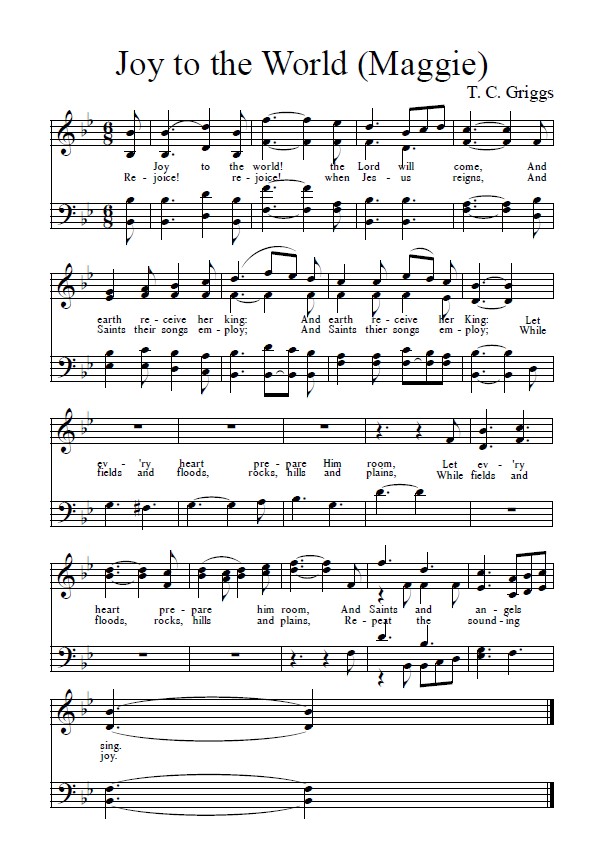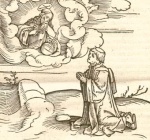-
•
•
5 responses

It has been our privilege, as guided by the whisperings of thy Spirit, to build unto thee this temple, which we now present unto thee as another of thy holy houses. … We humbly pray that thou wilt accept this edifice and pour out thy blessings upon it as a house to which thou wilt come and in which thy Spirit will direct all that is done, that it may be acceptable unto thee.[1] Fifty years ago today, the Ogden, Utah Temple was dedicated. Its sister, the Provo, Utah Temple, followed a month later, on February 9. I’ve lived in… Read More
-
•
•
3 responses

The Kinderhook plates provide an interesting incident in Church History that provide an interesting test case for how Joseph Smith approached translation. What are these plates? What can we learn about Joseph Smith from the incident? Well, Mark Ashurst-McGee and Don Bradley recently sat down with Kurt Manwaring for an interview to discuss what they found during their scholarly analysis of the Kinderhook Plates story. What follows here is a co-post, a shorter post with some quotes and discussion, but feel free to hop on over to full interview here. They explained the story of the Kinderhook plates as follows:… Read More
-
•
•
11 responses

In part 1 of this series discussing the contradictory commands given to Adam and Eve to not partake of the forbidden fruit but to also have children, I discussed the possibility that they would have been resolved in time, but they jumped the gun and listened to Satan rather than God, which is why they were in trouble. In part 2, I discussed the more popular idea that Eve chose to obey a higher law when she ate the fruit and that it wasn’t a sin in the full sense. Today, in the final post to round out this series,… Read More
-
•
•
16 responses
Many countries have continuity of government plans for what to do if the leadership suddenly dies in some sort of a catastrophe. The United States famously has a “designated survivor” that is in a secure location during the State of the Union so that somebody in the line of succession can be preserved if the Capitol building is destroyed; one of the of the most interesting manifestations of this planning is the fact that each of the four UK nuclear missile submarines has a handwritten letter from the Prime Minister in a safe that has instructions for what to do… Read More
-
•
•
13 responses
Any reasonably intelligent person can understand the principles involved in the search for extraterrestrial life issue that I addressed in my last science post. However, the issue of consciousness is fundamentally mind-wracking and forces us to question some of our basic intuitions. It can get crazy; with some philosophers going so far as to claim that consciousness itself is an illusion, and others claiming that consciousness is almost everything. Consequently, it’s a little foolhardy to do the issue and its relevance to the gospel justice in one post, but I will try. The standard position of philosophers and neuroscientists is… Read More
-
•
•
12 responses

Part 1 of this series discussed the contradictory commands given to Adam and Eve to not partake of the forbidden fruit but to also have children, I discussed the possibility that they would have been resolved in time, but they jumped the gun and listened to Satan rather than God, which is why they were in trouble. In this post, I discuss a more popular resolution in the Church to the contradiction centering on the concepts of the Fortunate Fall and that it wasn’t a full-blown sin to partake of the forbidden fruit. The basis of this idea is that… Read More
-
•
•
17 responses

One Sunday while I was on my mission, I was asked to teach the Gospel Principles class. The class was very small (just the missionaries and one part member family we’d been teaching), and the subject was the Fall of Adam and Eve. I remember this lesson, because I was explaining conditions in the Garden of Eden and the results of the Fall. The manual summarizes the scriptures and doctrines by stating that: “When Adam and Eve were placed in the Garden of Eden, they were not yet mortal. In this state, ‘they would have had no children’ (2 Nephi… Read More
-
•
•
8 responses
“John saw curious looking beasts in heaven, he saw every creature that was in heaven, all the beasts, fowls, & fish in heaven, actually there, giving glory to God. I suppose John saw beings there, that had been saved from ten thousand times ten thousand earths like this, strange beasts of which we have no conception <all> might be seen in heaven.” -Joseph Smith, 8 April 1843 That by him, and through him, and of him, the worlds are and were created, and the inhabitants thereof are begotten sons and daughters unto God. -D&C 76 About two days ago the… Read More
-
•
•
13 responses

Of all the Christmas carols in the English hymnbook, the one with the longest association with the Church’s hymnals is “Joy to the World.”[1] It’s probably fitting, then, that the “Come, Follow Me” materials for this week reference it. The reading material for the week is the document “The Living Christ,” published by the First Presidency and Quorum of the Twelve on 1 January 2000, “as we commemorate the birth of Jesus Christ two millennia ago.” The document covers the mission of Jesus Christ before, during, and after his mortal life. In one section, it states that: “We testify that… Read More
-
•
•
12 responses
For me, one of the most beautiful concepts in the Church of Jesus Christ of Latter-day Saints is the idea of Zion. Yet, to achieve that ideal, we are going to have to think and act radically differently than we are accustomed to thinking and acting. In a recent interview with Kurt Manwaring, Patrick Mason and David Pulsipher discuss their book, “Proclaim Peace: The Restoration’s Answer to an Age of Conflict” and some of what that book covers to help Latter-day Saints think about proclaiming peace to work towards Zion. What follows here is a co-post (a shorter post with… Read More
-
•
•
18 responses
Official Declaration 1 has some supplementary materials included in the Doctrine and Covenants in the form of three excerpts from different addresses where he explained the reasoning for the change. I’ve often mused on the idea of what would an analogous set of supplementary quotes look like for Official Declaration 2. At one point, I even created my own insert in my scriptures to fill that function. Admittedly, the addition of an introduction to the section in 2013 provides the key information, but I enjoy playing with hypotheticals for updates to the scriptures, so what would I include if I… Read More
-
•
•
4 responses
A few years ago, President Dieter F. Uchtdorf shared the following thoughts in general priesthood session: Sometimes we think of the Restoration of the gospel as something that is complete, already behind us—Joseph Smith translated the Book of Mormon, he received priesthood keys, the Church was organized. In reality, the Restoration is an ongoing process; we are living in it right now. It includes “all that God has revealed, all that He does now reveal,” and the “many great and important things” that “He will yet reveal.” Brethren, the exciting developments of today are part of that long-foretold period of preparation… Read More
-
•
•
4 responses

The question “Did Samuel Lutz really write this” is ultimately not as useful as the question of how the prophecy of “Lutius Gratiano” came about, and what function it served for those who kept it in circulation. Read More
-
•
•
4 responses
In traditional Christianity, there are significant figures known as the Early Church Fathers who are noted as influential Christian theologians and writers who established the intellectual and doctrinal foundations of Christianity as we know it today. While the Church of Jesus Christ of Latter-day Saints is still a form of Christianity and is indebted to these early Christian thinkers, Mormonism is its own movement and I’ve often pondered on who we would consider to be the Church Fathers (or Parents) of the Latter-day Saints. Certainly many of the presidents of the Church fall in this category—all three Joseph Smiths, Brigham… Read More
-
•
•
17 responses
I’ve said it before, and I’ll say it again, that I find it odd that Official Declaration 1, Official Declaration 2, and the Articles of Faith are all crammed into one week while The Family: A Proclamation to the World gets its own week. I mean, the Articles of Faith alone has two major classic Latter-day Saint books that focus on discussing and extrapolating from the document in great detail, each of which could function as a manual for Sunday School for a year on their own. Official Declarations 1 and 2 both deal with major topics in Church history. … Read More
-
•
•
2 responses
Do you remember that time when speakers in General Conference were allowed to speak in their own languages? In September of 2014, the Church put out an announcement that “General Conference Speakers Now Can Use Native Language”! But it didn’t last long. A year later, a Church spokesperson told a news outlet that the First Presidency had “decided that all talks for this weekend’s sessions will be given in English.” However, if you know where to look, you can still hear many leaders speaking in their own languages. Since long before 2014, some leaders have pre-recorded their talks in other… Read More
-
•
•
3 responses
‘Tis the season … to talk about polygamy, apparently. Kurt Manwaring recently sat down with Brian and Laura Hales for a question and answer session about polygamy. They have spent decades researching and writing about plural marriage (past and present), approaching the subject as faithful members of the Church of Jesus Christ of Latter-day Saints. It’s a very interesting interview to read through, so I recommend hopping on over to read it here. What follows on this page is a co-post to the one over at Kurt Manwaring’s site, with excerpts and some discussion on the subject. One topic they… Read More
-
•
•
4 responses

The prophecy of “Lutius Gratiano” has a missing link in its textual history. Read More
-
•
•
9 responses
President Joseph F. Smith’s Vision of the Redemption of the Dead is one of the most recent documents to be included in our cannon (only followed by Official Declaration 2). Experienced on 3 October 1918 and recorded shortly thereafter, the vision outlines the underlying theology behind proxy work for the dead that we perform in the temples. Received against a dramatic backdrop of death, the vision gives hope for all of humankind. Yet rather than breaking new ground, the document is a capstone of years of theological development in the Church of Jesus Christ of Latter-day Saints. That doesn’t undercut… Read More
-
•
•
2 responses
Have you ever met anyone who, through their example and experiences, leads you to seek deeper for God and Christ in your own life? Reverend Dr. Andrew Teal (a chaplain, fellow, and lecturer in theology at Pembroke College, Oxford University) is one of those types of people. Recently, he has been a visiting resident scholar with the Neal A. Maxwell Institute for Religious Scholarship at BYU to focus on writing a book about Joseph Smith, and sat down with Kurt Manwaring for an interview about his experiences and life. For the full interview, follow the link here. What follows on… Read More
-
•
•
2 responses
There is a story about President David O. McKay where a youth who wasn’t active in the Church flippantly asked him, “When was the last time you talked to God, President McKay?” President McKay answered in all seriousness that: “It was last week.” The person who shared the story noted that: “He left everyone wondering what he really meant by that, whether he was praying, talking to God, or whether it was another kind of experience. But the way it was said, it really left this kid shaken up.”[1] One of the ongoing tensions in the Church of Jesus Christ… Read More
-
•
•
One response

With early efforts to locate the text in mind, we can now reconstruct the origin of the prophecy of “Lutius Gratiano.” Read More
-
•
•
9 responses
Polygamy was one of the most divisive and explosive policies that Joseph Smith ever embraced. In many ways, it was what led to Joseph Smith’s death. He knew that it would be a cause of contention, both within the Church of Jesus Christ of Latter-day Saints and with those who were not members, and he made some efforts to both conceal the practice and to set up rules to keep it controlled. Key among the latter was the idea of only one individual serving as the gatekeeper to entering plural marriages. Yet, polygamy was a confusing and messy practice to… Read More



